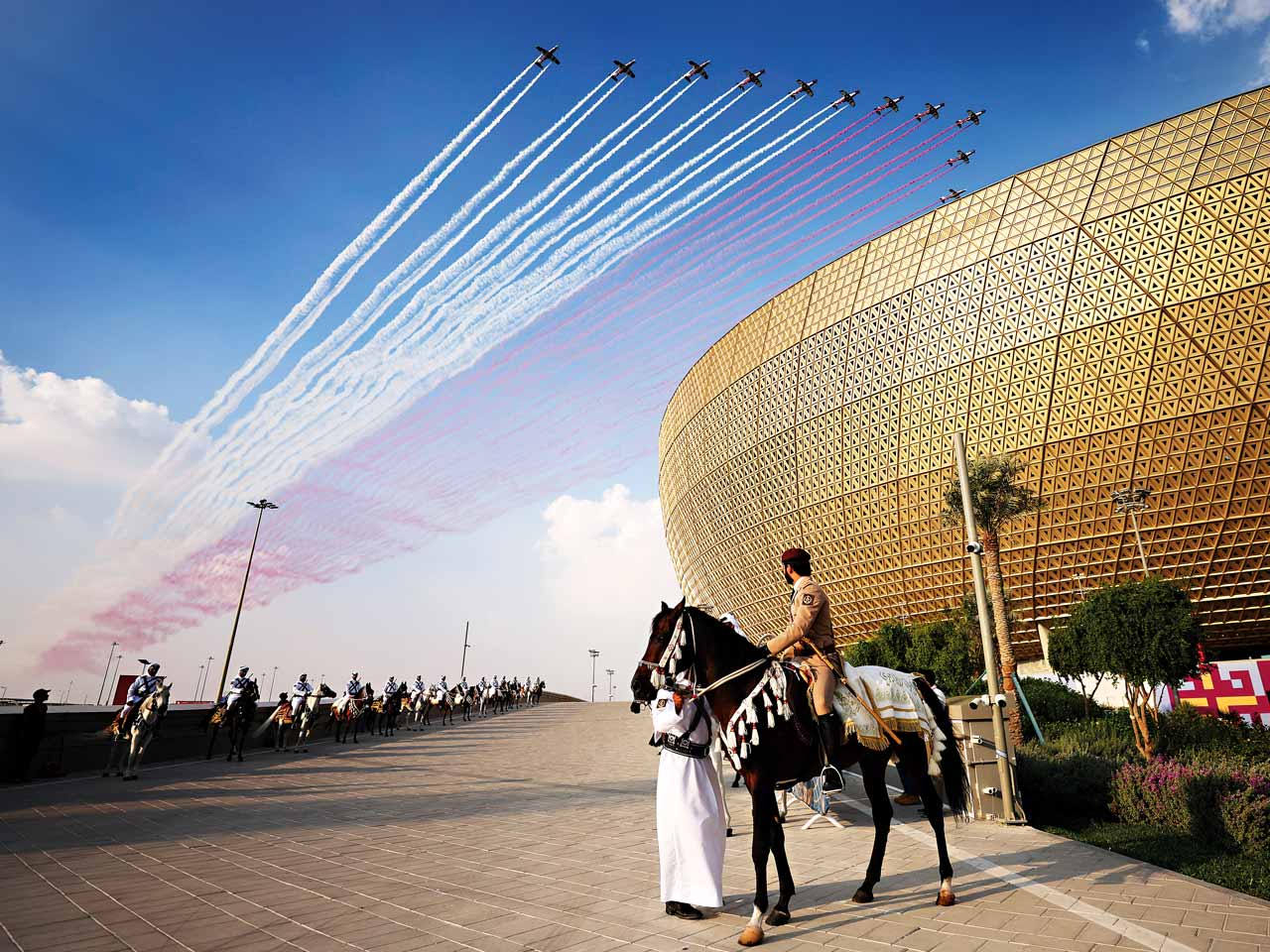Qatar, a nation historically dependent on its vast oil and gas reserves, is charting a transformative course toward economic diversification. The launch of the Third National Development Strategy (NDS3) in January 2025 underscores Qatar’s commitment to reducing its reliance on hydrocarbons and fostering sustainable growth across various sectors.
Investing in Infrastructure
A pivotal element of Qatar’s diversification strategy is its substantial investment in infrastructure. The development of Hamad International Airport has positioned Qatar as a major aviation hub, facilitating increased passenger traffic and cargo movement. Complementing this, Hamad Port has enhanced maritime trade capabilities, bolstering Qatar’s role in global commerce. The Doha Metro further exemplifies the nation’s dedication to modernizing urban transportation, improving connectivity within the capital and reducing traffic congestion. These projects not only elevate Qatar’s logistical prowess but also attract foreign investment by showcasing a commitment to state-of-the-art infrastructure.

Promoting Tourism
Tourism has emerged as a cornerstone of Qatar’s economic diversification efforts. The successful hosting of the FIFA World Cup in 2022 significantly boosted international visitor numbers, elevating Qatar’s global profile. Building on this momentum, the government aims to attract over four million visitors annually by investing in cultural, sports, and business tourism. Initiatives include the development of museums, such as the iconic Museum of Islamic Art, and the promotion of international sporting events. These endeavors not only generate revenue but also create employment opportunities, contributing to a more balanced and resilient economy.
Developing the Financial Sector
Qatar is actively positioning itself as a regional financial hub. The Qatar Financial Centre (QFC) offers a conducive environment for international financial institutions, providing services such as banking, insurance, and asset management. Recent initiatives include collaborations with global tech firms to enhance financial infrastructure and the introduction of regulatory reforms to attract foreign investment. For instance, the QFC’s partnerships aim to develop innovative financial solutions that reflect Qatar’s commitment to financial sector growth.
Investing in Education and Research
Recognizing the importance of a knowledge-based economy, Qatar has made significant investments in education and research. Education City, hosting branches of renowned international universities, serves as a hub for innovation and learning. The Qatar National Research Fund supports projects with potential economic impact, fostering advancements in renewable energy, biomedical sciences, and sustainable agriculture. By prioritizing education and research, Qatar is developing a skilled workforce capable of driving innovation across various sectors, laying the foundation for a diversified and resilient economy.
Promoting Entrepreneurship
Entrepreneurship is a key focus in Qatar’s economic diversification strategy. Initiatives like the Qatar Development Bank (QDB) and the Qatar Business Incubation Center (QBIC) provide funding, mentorship, and resources to startups and small businesses. Recent measures, such as reducing business setup fees, aim to create a supportive environment for entrepreneurs. By fostering a dynamic private sector, Qatar encourages innovation and reduces reliance on government-led enterprises. The Qatar Investment Authority (QIA) has also launched a $1 billion fund to support venture capital firms and stimulate the startup ecosystem.
Diversifying Energy Sources
While hydrocarbons remain central to Qatar’s economy, the country is investing in renewable energy projects to diversify its energy portfolio. The Al Kharsaah Solar Power Plant exemplifies Qatar’s commitment to sustainable energy solutions. These initiatives not only contribute to environmental sustainability but also position Qatar as a leader in the renewable energy sector, opening new avenues for economic growth. By harnessing solar and wind energy, Qatar aims to reduce its carbon footprint and ensure long-term energy security.
Strengthening Trade Relations
Qatar is actively expanding its trade relations to diversify its export base beyond hydrocarbons. By signing trade agreements and exploring new markets, Qatar aims to increase its trade surplus and economic resilience. Efforts to strengthen trade ties are complemented by investments in logistics and transportation infrastructure, enhancing Qatar’s role in global commerce. The country’s strategic location and state-of-the-art facilities position it as a key player in international trade, facilitating the movement of goods and services across regions.
Investing in Technology and Digital Infrastructure
In a move to bolster its digital economy, Qatar’s sovereign wealth fund has announced plans to merge domestic fiber networks with international cable businesses. This initiative aims to create a leading digital and AI infrastructure entity, positioning Qatar as a prominent digital hub regionally and globally. Such investments reflect Qatar’s commitment to embracing technological advancements as part of its diversification strategy. Additionally, collaborations with tech giants underscore Qatar’s dedication to fostering innovation and digital transformation.
Public-Private Partnerships (PPPs)
Public-private partnerships are integral to Qatar’s economic diversification efforts. The enactment of the PPP law in May 2020 has facilitated collaboration between the government and private sector in various industries, including education, healthcare, real estate, tourism, and energy. These partnerships aim to leverage private sector expertise and investment to deliver public services and infrastructure projects efficiently. By fostering a business-friendly environment, Qatar encourages private sector participation, driving innovation and competitiveness.
Conclusion
Qatar’s multifaceted approach to economic diversification demonstrates a proactive commitment to building a resilient and sustainable economy. By investing in infrastructure, education, technology, and various non-energy sectors, Qatar is laying the foundation for a future less dependent on hydrocarbons. These strategic initiatives not only enhance economic stability but also position Qatar as a dynamic player in the global economy, ready to adapt to evolving global trends and challenges.



